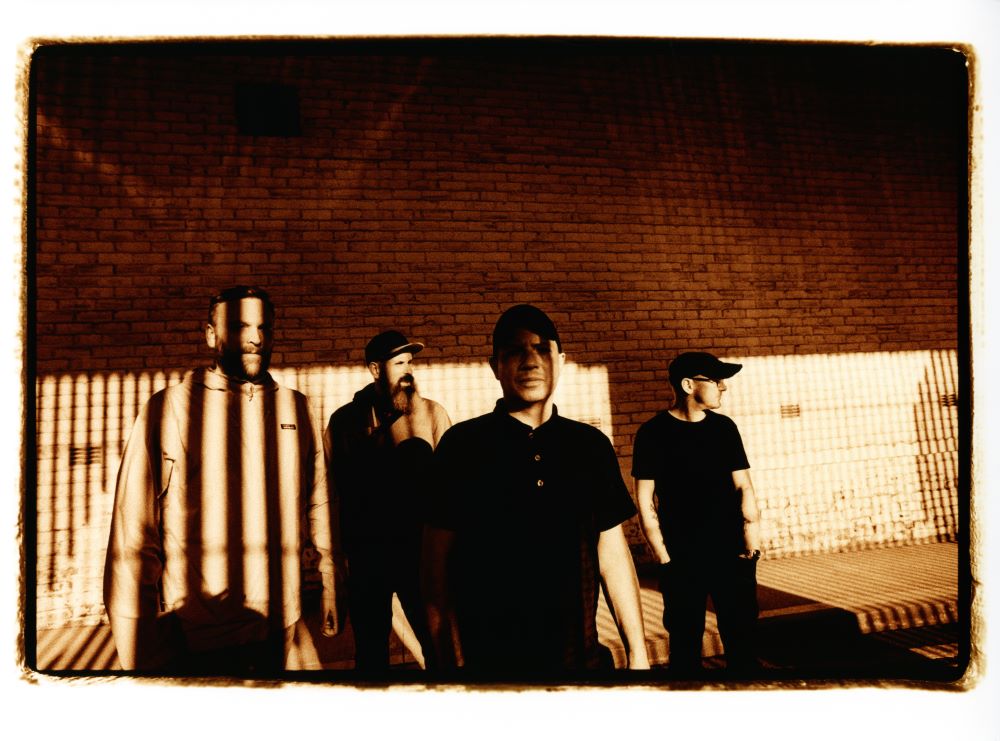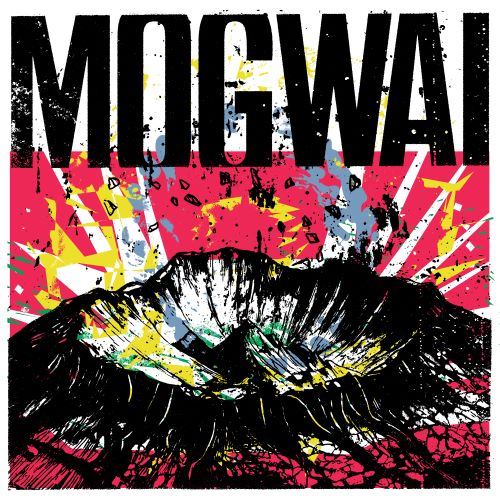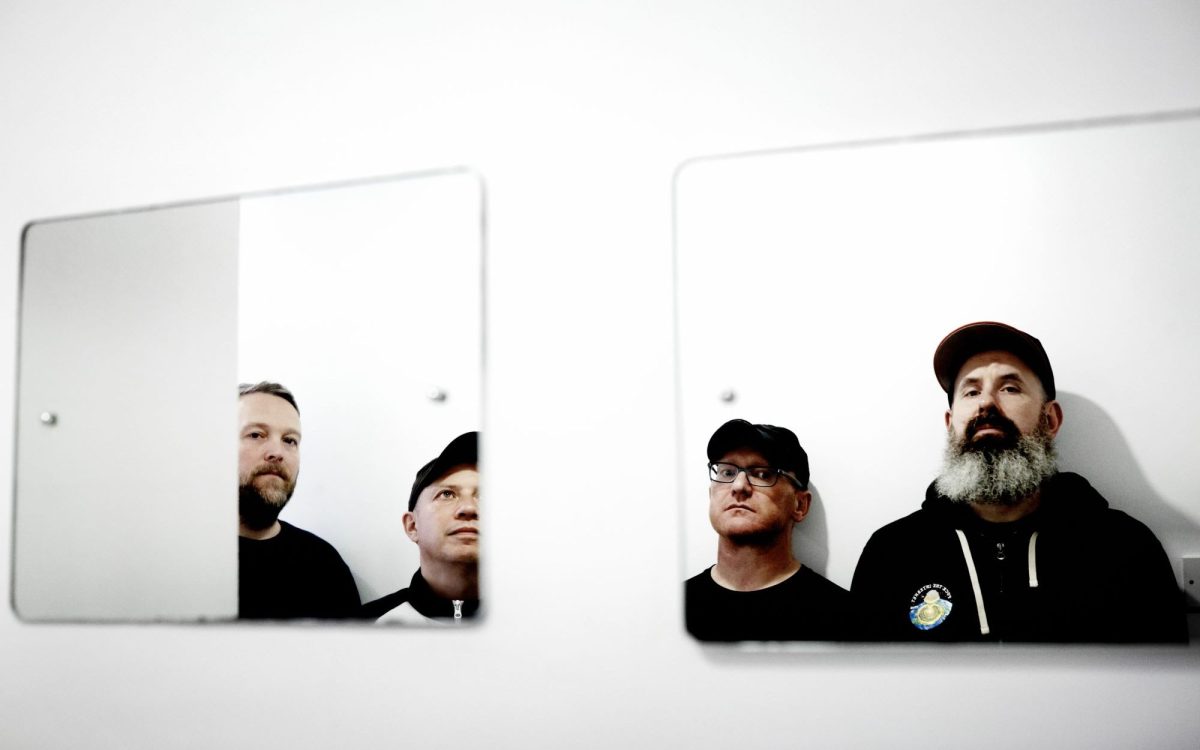“I’m really happy with the record; I think it’s some of the best music we’ve made,” says singer-songwriter and guitarist Stuart Braithwaite, one of the co-founders of post-rock band Mogwai, as he describes the Scottish band’s brand new album, The Bad Fire.
Released this week through Rock Action Records, Mogwai’s own independent label, The Bad Fire is a deep dive into the band’s ongoing exploration of sonic contrasts, one moment all thunderous guitars, the next minute subtle, expansive and fragile.
Named after a Scottish term for Hell, The Bad Fire has already received plaudits and adulation from music critics, with The Guardian’s Alexis Petridis praising Mogwai’s 11th studio album as “elating rather than confrontational… [and] a rich, enveloping delight”.Sam Law, writing in the venerable Kerrang!, noted that The Bad Fire evokes “the radiant glow of a future still unwritten”.
As with goth-rock’s elder statesmen The Cure, whose 2024 album Songs of a Lost World grew out of loss and anguish (Robert Smith, The Cure’s co-founder and long-standing guitarist/vocalist, wrote the album’s pivotal track ‘I Can Never Say Goodbye‘ about the death of his older brother, Richard), The Bad Fire is an act of creative alchemy in which trauma is transformed into beautiful and compelling music.
“From the point of view of making [the album in 2024], being able to focus on something, I think, was quite important for the band,” Braithwaite explains, especially for Mogwai’s guitarist, pianist and synthesiser player Barry Burns.
“Barry’s little girl was really, really ill. She spent, like, most of the year in hospital and Barry couldn’t really do anything. So when we managed to all get together and play and write the songs, it felt very important. It felt that it was something that just worked on a lot of levels to help us through everything that was going on, and, even just for Barry, having something to do that wasn’t dealing with all the trauma he was experiencing with his family, I think, helped him,” Braithwaite says.
The creative process was also helpful for Mogwai’s bassist, Dominic Aitchison, Braithwaite adds.
“Dominic lost his dad not long before we started making the record too, and so it’s definitely… you get to a point in life, don’t you, where a lot of things come up that you’re not expecting. And I think we’re very lucky to have each other as friends, but also to have this ongoing musical project where we can [come] together to make things and to play concerts – I think the record definitely played a big part in that [journey], yeah.”
Rejecting post-rock?
Founded in Glasgow in 1995, Mogwai are among the leading lights of post-rock, a loosely-defined genre which also includes the likes of Iceland’s Sigur Rós and the US’s Godspeed You! Black Emperor and Explosions in the Sky – though the band rejected the genre in the early noughties, with Aitchison calling the descriptor “a stupid term” used by lazy and unimaginative music critics in a 2001 interview with US music magazine Under the Radar.
A common signifier of so-called post-rock is a rejection of traditional ‘verse-chorus-verse’ song structures and the absence of vocals, despite Mogwai regularly including vocals and spoken word samples on many of their albums, beginning with ‘Yes! I Am a Long Way From Home’, the opening track of their 1997 debut, Mogwai Young Team, which featured a spoken excerpt from an early Swedish review of the band (“If the stars had a sound, they would sound like this”).
Braithwaite’s singing also features in the likes of ‘Angels versus Aliens’ from Ten Rapid (Collected Recordings 1996–1997), ‘Take Me Somewhere Nice’ from 2001’s Rock Action, ‘Ritchie Sacramento’ from 2021’s As the Love Continues (Mogwai’s first album to reach number one in the UK charts) and many more – including The Bad Fire (produced by the Grammy Award-winning John Congleton) on tracks such as ‘Fanzine Made of Flesh’ and ‘18 Volcanoes’.

Agreeing that the band’s approach to lyrics and song structures has changed over time, Braithwaite explains, “When we very first started the band, most of the songs had lyrics and singing, and then I think we just got to a point where the instrumentals were better. I mean, I’m not a very strong singer. I can kind of get away with doing a little bit, but I’m not David Bowie, you know? But we have quite a lot of spoken word and [lyrics] and, yeah, it kind of takes you to a different place, doesn’t it, if you’re hearing snippets of things here and there?
“So yeah, I think we’ve also, over the years, been able to adapt things and maybe change things a little bit. There’s a song on the new album that we recorded as a regular vocal [track] and it just wasn’t working, and we ended up vocoding the vocal, if you know what I mean? So it ended up with the vocoder being the melody rather than with me singing it straight. It’s kind of funny to just try and use the voice as something to add some humanity to it, but not always in a ‘straight singer’ sort of way,” he says.
Released internationally this Friday 24 January, The Bad Fire is “a really varied record,” Braithwaite says.
“It has like a lot of really minimal moments, and also has some things that we’ve never really done before. I think it has a lot to it. A few things are very typically Mogwai and then, as I said, a few things that sound like nothing we’ve ever done before. So, at the moment, it’s one of my favourite records we’ve ever released. That may change, you know, but at the moment, I’m still extremely excited about it,” he concludes.
Mogwai’s The Bad Fire is released globally on 24 January through Rock Action Records.

This article is based on an extended conversation between Stuart Braithwaite and Richard Watts that was originally broadcast on Watts’ 3RRR program SmartArts on 5 December 2024, during Braithwaite’s solo tour of Australia.





